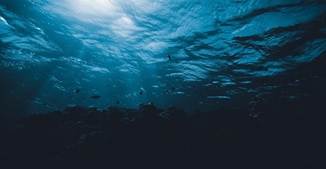22 September, 2025
India’s Exploration Contract with ISA for Polymetallic Sulphides in the Northwestern Indian Ocean
Wed 17 Sep, 2025
Context:
- India has signed a 15-year exploration contract with the International Seabed Authority (ISA) for the exploration of Polymetallic Sulphides (PMS) in the Carlsberg Ridge, Northwestern Indian Ocean.
Key Points:
- Key Points:
- The contract grants India exclusive exploration rights over an area of 10,000 sq. km.
- This is the first-ever global license for PMS exploration in the Carlsberg Ridge, positioning India as a pioneer in this region.
- Date of Signing: 15 September 2025, New Delhi – between ISA Secretary-General Leticia Carvalho and Dr. M. Ravichandran, Secretary, Ministry of Earth Sciences.
- Duration: 15 years
- Area: 10,000 sq. km in the Carlsberg Ridge, Northwestern Indian Ocean
- Significance: The first global license, making India the country with the largest allocated exploration area, in line with UNCLOS and the 1994 Implementation Agreement.
- Application Process: India submitted two applications in January 2024 – one for PMS (Carlsberg Ridge) and another for cobalt-rich crusts (Afanasy-Nikitin Seamount).
Importance for India
Economic Significance:
- Mineral Security: Ensures domestic supply of critical metals (Cu, Zn, Co, Ni, Au, Ag, etc.) required for EVs, renewable energy, and hi-tech industries.
- Technological Development: Boosts India’s deep-sea mining technologies (AUVs, mining machines).
- Policy Support: Strengthens the goals of ‘Deep Ocean Mission’ (2021) focused on deep-sea mining.
Strategic Significance:
- Global Competition: Enhances India’s position against China, Russia, and other nations in the deep-sea race.
- Regional Strategy: Strengthens India’s SAGAR policy (Security and Growth for All in the Region) through presence in the Indian Ocean.
Environmental and Global Impact:
- Challenges: Deep-sea mining poses threats to marine ecosystems – biodiversity loss and disruption of hydrothermal vent organisms.
- Regulation: ISA is still drafting the Mining Code; exploration will comply with environmental standards.
- Global Perspective: Among ISA’s 30 contracts, many are with developing countries and small island nations. India’s move supports sustainable development and resource security.
India’s Previous Contracts
- 2002 Contract: For Polymetallic Nodules (PMN) in the Central Indian Ocean Basin (CIOB), covering 75,000 sq. km. Signed on 25 March 2002, extended in 2017 & 2022, valid until 24 March 2027.
- 2016 Contract: For PMS in the Central Indian Ridge (CIR) and Southwest Indian Ridge (SWIR), covering 10,000 sq. km, also 15 years.
- ➡️ With this new license, India now holds three contracts with ISA, becoming the first country with two PMS contracts.
Polymetallic Sulphides (PMS)
- Found near hydrothermal vents (volcanic sources) located along mid-ocean ridges.
- Form chimney-like structures called “black smokers.”
- Rich in Cu, Zn, Au, Ag, Co, Ni, Mn and rare earth elements.
- Critical for EVs, solar panels, batteries, and high-tech industries.
- Carlsberg Ridge: A mid-ocean ridge in the Indian Ocean with high-temperature hydrothermal vents.
- Since the discovery of black smokers in 1978–79, more than 350 sites have been identified.
- PMS are 3D deposits, requiring different mining techniques than nodules.
International Seabed Authority (ISA)
- Established: 16 November 1994 (under UNCLOS 1982 and 1994 Agreement).
- Headquarters: Kingston, Jamaica
- Membership: 169 (168 countries + EU), USA not a member
Mandate:
- Regulates exploration and exploitation of mineral resources in the high seas.
- Ensures protection of the marine environment.
High Seas:
- Cover 54% of the world’s oceans.
- Areas beyond national jurisdiction (EEZ, territorial seas, archipelagic waters excluded).
- ISA authorization mandatory for exploration.
- 19 countries currently hold exploration rights.


















